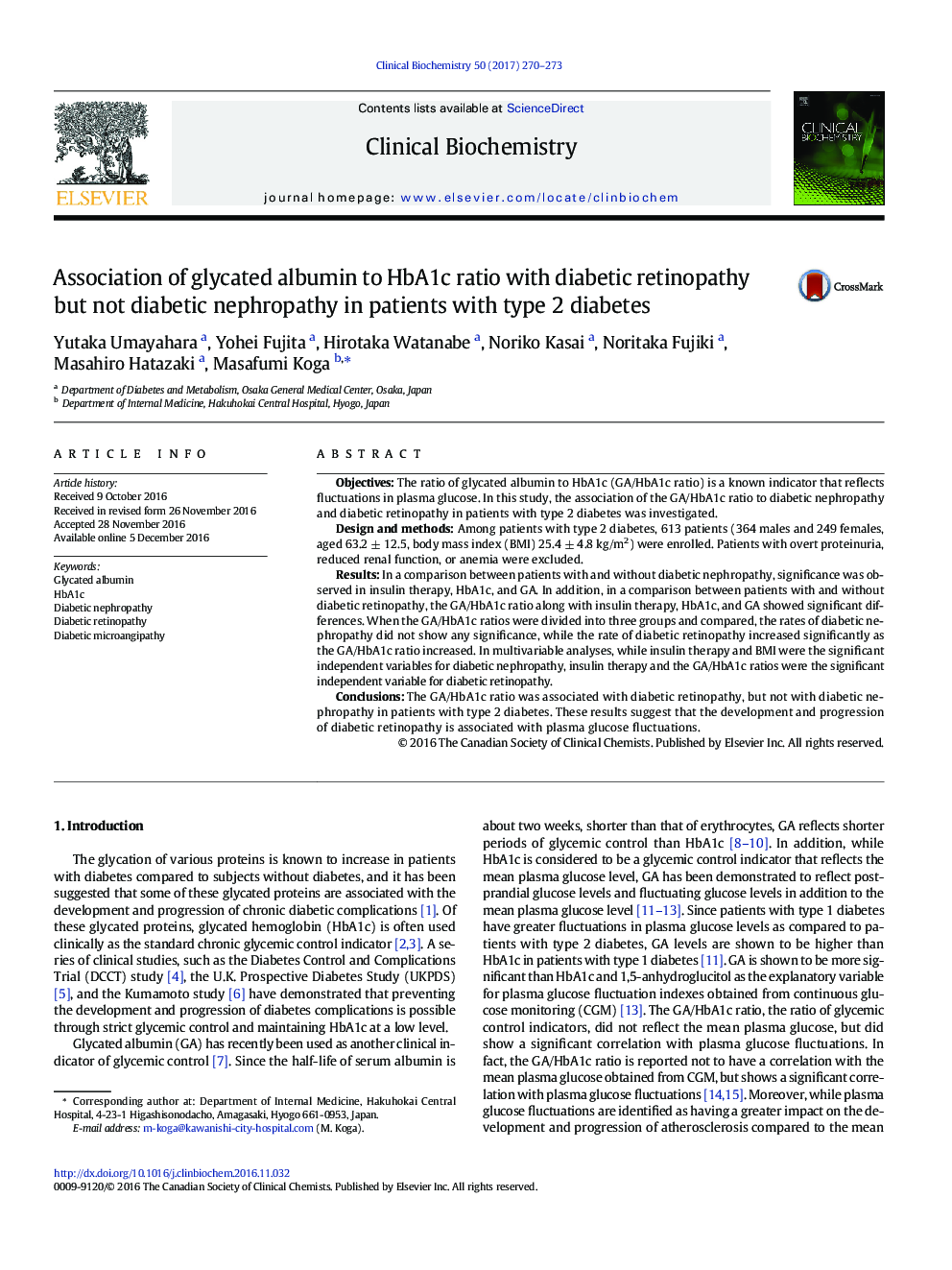| Article ID | Journal | Published Year | Pages | File Type |
|---|---|---|---|---|
| 5510120 | Clinical Biochemistry | 2017 | 4 Pages |
â¢Glycated albumin (GA)/HbA1c ratio reflects fluctuations in plasma glucose.â¢We examined the association of the GA/HbA1c ratio to diabetic retinopathy (DR).â¢In multivariable analyses, GA/HbA1c ratios were the significant variable for DR.â¢Development and progression of DR may be associated with plasma glucose fluctuations.
ObjectivesThe ratio of glycated albumin to HbA1c (GA/HbA1c ratio) is a known indicator that reflects fluctuations in plasma glucose. In this study, the association of the GA/HbA1c ratio to diabetic nephropathy and diabetic retinopathy in patients with type 2 diabetes was investigated.Design and methodsAmong patients with type 2 diabetes, 613 patients (364 males and 249 females, aged 63.2 ± 12.5, body mass index (BMI) 25.4 ± 4.8 kg/m2) were enrolled. Patients with overt proteinuria, reduced renal function, or anemia were excluded.ResultsIn a comparison between patients with and without diabetic nephropathy, significance was observed in insulin therapy, HbA1c, and GA. In addition, in a comparison between patients with and without diabetic retinopathy, the GA/HbA1c ratio along with insulin therapy, HbA1c, and GA showed significant differences. When the GA/HbA1c ratios were divided into three groups and compared, the rates of diabetic nephropathy did not show any significance, while the rate of diabetic retinopathy increased significantly as the GA/HbA1c ratio increased. In multivariable analyses, while insulin therapy and BMI were the significant independent variables for diabetic nephropathy, insulin therapy and the GA/HbA1c ratios were the significant independent variable for diabetic retinopathy.ConclusionsThe GA/HbA1c ratio was associated with diabetic retinopathy, but not with diabetic nephropathy in patients with type 2 diabetes. These results suggest that the development and progression of diabetic retinopathy is associated with plasma glucose fluctuations.
